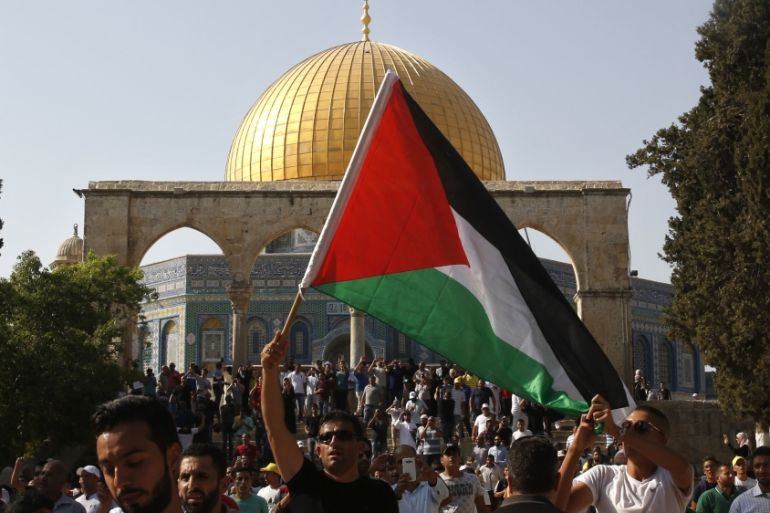Reports: Israel to allow MPs to visit al-Aqsa
Reported easing of ban prompts social media calls for Palestinians to also be present at the Jerusalem site next week.

Israeli Prime Minister Benjamin Netanyahu plans to ease a ban on legislators visiting the al-Aqsa Mosque compound next week, according to news reports said.
The news prompted calls by activists on social media asking Palestinians to also be present at the site in occupied East Jerusalem on Tuesday, Palestinian news agency Wafa reported on Thursday.
Keep reading
list of 4 items‘Hell on Earth’ as violence escalates in Sudan’s el-Fasher
South Korean military says North Korea test-fired ‘ballistic missiles’
Western volunteers join the battle against Myanmar’s military regime
Earlier, AFP news agency had quoted an Israeli official as saying that members of parliament would be allowed to visit the site known to Muslims as Haram al-Sharif and Jews as the Temple Mount in a one-day trial next week.
“In consultation with security officials, Prime Minister Benjamin Netanyahu decided to open the Temple Mount to MPs’ visits, for one day at this stage, on Tuesday, August 29,” the member of the prime minister’s office, who spoke on condition of anonymity, said.
“The decision was taken in light of the improvement in the security situation at the site,” he said. “Decisions on the issue will continue to be made in accordance with assessments of the security situation.”
Israel’s Channel 2 cited officials confirming the move on Thursday.
READ MORE: The battle for al-Aqsa ‘has just started’
Netanyahu instructed police in October 2015 to bar MPs from visiting the site in the Old City of Israeli-annexed East Jerusalem, which houses the al-Aqsa Mosque complex.
|
|
It was meant to help calm unrest that erupted in part over Palestinian fears that Israel was planning to assert further control over the compound.
The site is the holiest site in Judaism and the third-holiest in Islam, and it is central to the Israeli-Palestinian conflict.
Jews are allowed to visit the compound but not pray there, and the site has been the scene of regular confrontations over any attempt to flout the rule.
Yehuda Glick, a legislator from Netanyahu’s right-wing Likud party, petitioned Israel’s Supreme Court in March against the ban on members of the Knesset, the Israeli parliament, from visiting the hilltop site.
Glick performed prayers outside al-Aqsa Mosque under the protection of Israeli police early on Wednesday, and more than 130 Israeli settlers entered the compound.
READ MORE: ‘We won’: Al-Aqsa Mosque reopened to all Palestinians
In July, Palestinians protested night and day for nearly two weeks, refusing to pray inside the compound after Israel installed metal detectors at its entrances.
They held prayers in the streets and just outside the gates to the Old City.
Palestinians viewed the installation of the surveillance equipment as Israel asserting further control.
The new regulations came after an attack on July 14 by three Palestinian citizens of Israel, who killed two Israeli policemen in the Old City of Jerusalem.
The three men were then chased inside the compound before they were shot and killed.
In 13 days of protests, Israeli forces wounded more than 1,000 Palestinians during clashes, according to the Palestinian Red Crescent.
On July 26, Israeli authorities removed the surveillance equipment and other obstacles from the gates leading to the holy site.
|
|